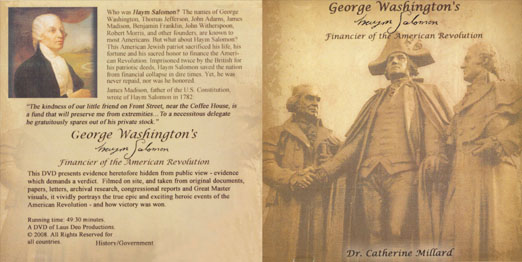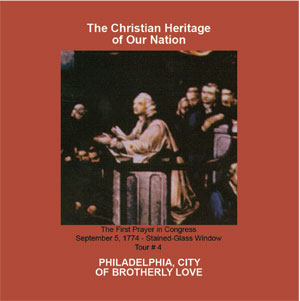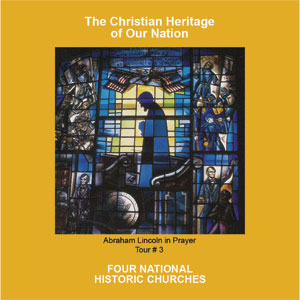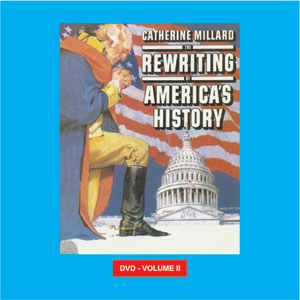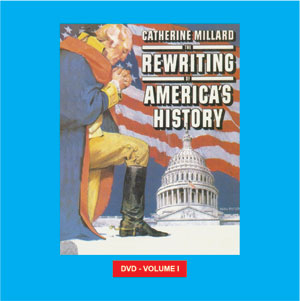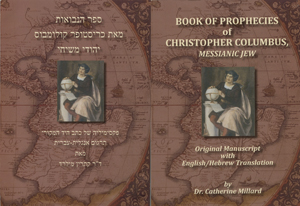1722
|
Born on September 27th in Boston,
Massachusetts
|
| 1740
|
Graduated from Harvard College, A.B.
|
| 1743
|
Graduated from Harvard College, A.M. |
| 1747-48
|
Organized a Political club and Newspaper |
1764
|
Drafted the Boston Instructions –
Proposed a Union of the Colonies in
opposition to Parliament
|
| 1765-74
|
Member of the Massachusetts legislature |
| 1765
|
Drafted the Massachusetts Resolves |
| 1766
|
Conducted a Controversy with the Governor |
| 1768
|
Declares for Independence |
| 1769
|
Wrote “An Appeal to the World”
|
| 1770
|
Demanded the removal of the Troops |
1772
|
Author of “The Rights of the Colonists” –
Founded the Massachusetts “Committee of
Correspondence”
|
1773
|
Called for a Continental Congress
Organized the Boston Tea Party |
| 1774-81
|
Member of the Continental Congress |
1775
|
Member of the Provincial Congress,
Secretary of State, Councilor
|
| 1776
|
Signed the Declaration of Independence |
| 1777
|
Member of the Board of War |
1779
|
Member of the State Constitutional
Convention
|
| 1781
|
President of the Massachusetts Senate |
1788
|
Member of the Convention to adopt the
Federal Constitution
|
1789-93
|
Lieutenant Governor of Massachusetts |
| 1794-97
|
Governor of Massachusetts |
1803
|
Died on October 2nd in Boston,
Massachusetts
|
The media portrays Samuel Adams dressed in colonial attire, a tankard in hand, with the inscription beneath, “Patriot – Brewer.” Is this description accurate?
The historic annals of Samuel Adams’ own church, the Old South Meeting House in Boston, tell us that he was “the visible product of the New England Church; that he was born and nurtured, trained and molded under its powerful and penetrating influence; that the biblical principles and republican government of these Christian churches, under life-changing ministries, produced the sound, clear-thinking patriots whose wisdom laid the foundations of America’s freedoms; and that the doctrine of the dignity of man, made in God’s image, and hence, the equality of human rights and liberties as God’s inalienable gift to man, found its source in the Sacred Scriptures.” 1
Hence it was that Samuel Adams gained the reputation of being, “The Organizer of the American Revolution; the American Cato; the Chief Incendiary; Tribune of the People; the Cromwell of New England and the Last of the Puritans.” 2
Further to this, Samuel Adams was astute, cool and clear-headed, tactful, insightful and far-seeing. Skilled in all the arts of the practical politician, he was pre-eminently a manager of men. Careless of personal fame, he was capable of continual self-effacement – other men put forward by him often appearing responsible for measures or acts which he himself originated or inspired; an effective speaker, and perhaps the most voluminous political writer of his time in America. He frequently concealed the authorship of his contributions to the press, and altogether used as many as 25 fictitious signatures.3
Thomas Jefferson said of Adams, “I always considered him, more than any other member, the fountain of our more important measures.” 4
On Thursday, August 1st, 1776, Samuel Adams’ Oration delivered at the State House in Philadelphia (Independence Hall) to a very numerous audience, as member of the General Congress of the United States, gives credence to these honors bestowed upon him:
COUNTRYMEN AND BRETHREN,
I would gladly have declined an honor to which I find myself unequal. I have not the calmness and impartiality which the infinite importance of this occasion demands. I will not deny the charge of my enemies that resentment for the accumulated injuries of our Country, and an ardour for her glory, rising to enthusiasm, may deprive me of that accuracy of judgment and expression which men of cooler passions may possess. Let me beseech you then to hear me with caution; to examine without prejudice, and to correct the mistakes into which I may be hurried by my zeal.
Truth loves an appeal to the common sense of mankind. Your unperverted understandings can best determine on subjects of practical nature. The positions and plans which are said to be above the comprehension of the multitude may be always suspected to be visionary and fruitless. He who made all men hath made the truths necessary to human happiness obvious to all.
Our Fore-Fathers threw off the yoke of Popery in Religion; for you is reserved the honor of leveling the popery of politicks. They opened the Bible to all, and maintained the capacity of every man to judge for himself in Religion. Are we sufficient for the comprehension of the sublimest spiritual Truths, and unequal to material and temporal ones? Heaven hath trusted us with the management of things for Eternity, and man denies us ability to judge of the present, or to know from our feelings and experience what will make us happy. – “You can discern, say they, objects distant and remote, but cannot perceive those within your grasp.” – Let us have the distribution of present goods, and cut out, and manage as you please, the interests of futurity.” – This day, I trust, the reign of political Protestantism will commence. We have explored the temple of Royalty, and found that the idol we have bowed down to has eyes which see not, ears that hear not our Prayers, and a heart like the nether millstone. The homage that is paid in some countries to monarchs and their favourites is disgraceful to humanity. Should one of my honest Countrymen be suddenly conveyed to a European Court, he would fancy himself admitted into some heathen Temple. The policy of courtiers seems to have been to render their sovereigns as dependent on themselves as possible, by accustoming them to hear with their ears, see with their eyes, and perform the most common offices with their assistance and under their direction: like the cunning of priests who labour to place themselves between the Deity and mankind, and to make themselves the only channels of communication between earth and Heaven. –
We have this day restored the Sovereign to whom alone men ought to be obedient: He reigns in Heaven, and with a propitious Eye beholds his subjects assuming that freedom of thought, and dignity of self-direction, which He bestowed on them. From the rising to the setting sun, may His Kingdom come.
Having been a slave to the influence of opinions early acquired, and distinctions generally received, I am ever inclined not to despise but pity those who are yet in darkness: But to the Eye of Reason, what can be more clear, than that all men have an equal right to happiness? Nature made no other distinction than that of higher or lower degrees of power of mind and body: But what mysterious distribution of character has the craft of Statesmen, more fatal than Priest-craft, introduced!
According to their doctrine, the offspring of perhaps the lewd embraces of a successful invader, shall from generation to generation arrogate the right of lavishing on their pleasures a proportion of the fruits of the earth, more than sufficient to supply the wants of thousands of their fellow creatures; claim authority to manage them like beasts of burden, and without superior industry, capacity, or Virtue, nay though disgraceful to humanity by their ignorance, intemperance, and brutality, shall be deemed best calculated to frame laws, and to consult for the welfare of society.
Were the talents and virtues, which Heaven has bestowed on men, given merely to make them more obedient drudges, to be sacrificed to the follies and ambition of a few? Or were not the noble gifts so equally dispensed with a Divine purpose and Law, that they should as nearly as possible be equally exerted, and the blessings of Providence be equally enjoyed by all? Away then with those absurd Systems, which, to gratify the pride of a few, debase the greatest part of our species below the order of men! What an affront to the King of the Universe, to maintain that the happiness of a monster sunk in debauchery and spreading desolation and murder among men, of a Caligula, a Nero, or a Charles, is more precious in His sight, than that of millions of His suppliant creatures who do justice, love mercy and walk humbly with their God! – No! In the judgment of Heaven there is no other superiority among men, than a superiority in Wisdom and Virtue. And can we have a safer model in forming ours? The Deity then has not given any order or family of men authority over others, and if any men have given it, they only could give it for themselves. Our Fore-Fathers, ’tis said, consented to be subject to the laws of Great Britain. I will not at present dispute it nor mark out the limits and conditions of their submission; but will it be denied that they contracted to pay obedience, and to be under the control of Great Britain, because it appeared to them most beneficial in their then present circumstances and situation? – We, my Countrymen, have the same right to consult and provide for our happiness, which they had to promote theirs. If they had a view to posterity in their contracts, it must have been to advance the felicity of their descendants. If they erred in their expectations and prospects, we can never be condemned for a conduct which they would have recommended, had they foreseen our present condition.
Ye Darkners of Counsel, who would make the property, lives, and Religion of millions depend on the evasive interpretations of musty parchments – who would send us to antiquated Charters of uncertain and contradictory meaning, to prove that the present generation are not bound to be victims to cruel and unforgiving despotism…
No man had once a greater veneration for Englishmen than I entertained. They were dear to me as branches of the same parental trunk, and partakers of the same Religion and Laws: I still view with respect the remains of the Constitution as I would a lifeless body which had once been animated by a great and heroic soul. But when I am raised by the din of arms; when I behold legions of foreign assassins paid by Englishmen to imbrue their hands in our blood, when I tread over the uncoffined bones of my countrymen, neighbours and friends, when I see the locks of a venerable father torn by savage hands, and a feeble mother clasping her infants to her bosom, and on her knees imploring their lives from her own slaves whom Englishmen have allured to treachery and murder; when I behold my country, once the seat of industry, peace, and plenty, changed by Englishmen to a theatre of blood, and misery, Heaven forgive me, if I cannot root out those passions which it has implanted in my bosom, and detect submission to a people who have either ceased to be human, or have not virtue enough to feel their own wretchedness and servitude… 5
To learn more, click here.
___________________________
Bibliography:
1
Porter, Edward G. An Address on the Life and Character of Samuel Adams, delivered in the Old South Meeting House, Boston, Sunday, October 26th, 1884. On the occasion of the erection of tablets in the Church, commemorative of its line of Ministers, and of Samuel Sewell and Samuel Adams. Boston: Press of David Clap and Son, 1885, p. 3. Library of Congress, Rare Book Collection.
2
Ibid., p. 44.
3
Scott, Walter Dill, B.A., Ph.D., L.L.D., (ed.) President Emeritus, Northwestern University. The American Peoples Encyclopedia. Samuel Adams. Chicago: The Spencer Press, Inc., 1948.
4
Ibid.
5
Adams, Samuel. An Oration delivered at the State-House in Philadelphia to a very numerous audience, on Thursday the 1st of August, 1776. Member of the General Congress of the United States of America. Philadelphia: E. Johnson, 1776. Library of Congress, Rare Book Collection.

